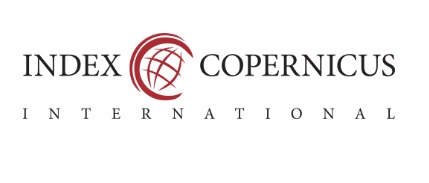The influence of barosok trading system on ethical business behavior in the husbandry sector in West Sumatera
Abstract
Aim: The purpose of this study is to provide a detailed description of the barosok maxim and its connections to Kant’s ethical theory as they pertain to the West Sumatera animal market.
Methodology: Qualitative research methods were used in this exploratory study. In the deductive approach, interviews are used to collect data, which is then analyzed using content analysis.
Findings: The model of categorical imperatives outlined in the Kantian Theory was found to be related to the central values of Barosok through research. The implementation of Kantian Theory on business ethics in the barosok tradition in West Sumatera is still being used today, even though the research also discovered an ethical conundrum among market participants.
Implications/Novelty: Ethical investigations into Indonesia’s animal-trade industries can benefit from this study. In the future, researchers may examine the barosok method’s ethical value in light of Indonesian legislation.
References
Besley, T. 1994. “How Do Market Failures Justify Interventions in Rural Credit Markets?” The World Bank Research Observer 9(1): 27-47.
Bowie, N. E. 1998. Business Ethics: A Kantian Perspective. Hoboken, NJ: Blackwell Publisher.
Dierksmeier, C. 2010. “Kant’s Humanistic Business Ethics.” Retrieved May 22, 2016 (https://goo.gl/wvoMxl).
Kant, I. 1990. Foundations of the Metaphysics of Morals. New York, NY: Macmillan Publishing Company.
Effendi, N. 1999. “Minangkabau Rural Markets: Their System, Roles and Functions in the Market Community of West Sumatra.” Unpublished thesis, Bielefeld University, Bielefeld, Germany.
Madarisa, F. 2012. “Portrait of West Sumatra Livestock Market.” Jurnal Peternakan Indonesia 14(3): 433-440.
Moloeng, L. J. 2000. Qualitative Research Methods. Bandung, Indonesia: PT. Remaja Rosda Karya.
Morf, D. A., Schumacher, M. G., and Vitell, S. J. 1999. “A Survey of Ethics Officers in Large Organizations.”Journal of Business Ethics 20(3): 265-271.
Salehi, M., Saeidinia, M., and Aghaei, M. 2012. “Business Ethics.” International Journal of Scientific and Research Publication 2(1): 1-5.
Sugiyono, P. 2008. Understanding Qualitative Research. Bandung, Indonesia: Alfabeta.
Zhang, Y., and Wildemuth, B. M. 2009. “Qualitative analysis of content.” pp. 308-319 in Applications of Social Research Methods to Questions in Information and Library Science, edited by B. Wildemuth. Westport, CT: Libraries Unlimited.

This work is licensed under a Creative Commons Attribution-NonCommercial 4.0 International License.












.png)










